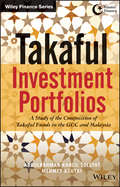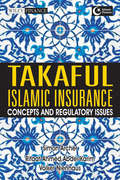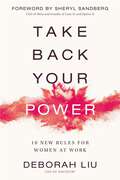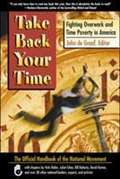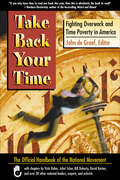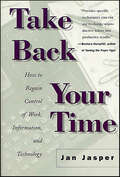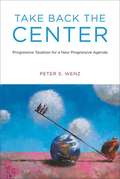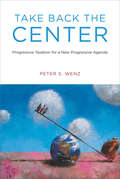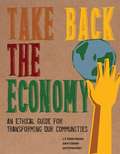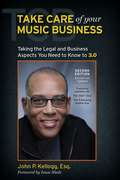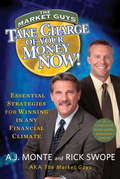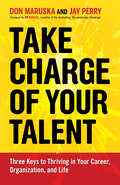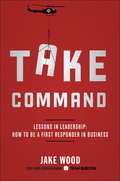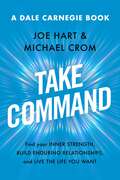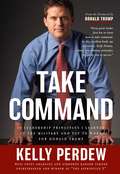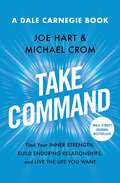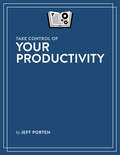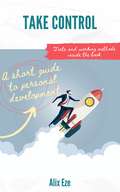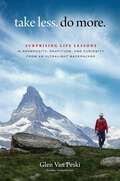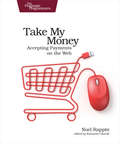- Table View
- List View
Taj Hotel Group
by Thomas J. Delong Vineeta VijayaraghavanR.K. Krishna Kumar, managing director and head of Taj Hotel Group, has to decide whether to reexamine a promotion decision. In an attempt to deliver a level of service quality that met global standards at the Indian hotel chain, Kumar had introduced new personnel management systems at the company. As a result, a committee was now responsible for deciding which managers should be promoted to senior positions at the company. Taj's COO, one of the more respected executives at the company, requested that a committee decision be overturned. Kumar must respect the committee's choice or indulge his popular manager's request to reexamine it.
Taj Hotels, Resorts and Palaces
by Rohit Deshpande Mona SinhaThe Taj Hotels, Palaces, and Resorts introduced a new brand architecture to counter lack of differentiation and confused positioning of its mixed bag of brands. After launching an economy and an upscale brand, it dithered over the launch of its upper upscale and luxury brands. The case illustrates the marketing and organizational challenges of a hybrid brand extension strategy that lies in between a 'house of brands' and a 'branded house'.
Takaful Investment Portfolios
by Abdulrahman Khalil Tolefat Mehmet AsutayA groundbreaking study of the investment portfolios of takaful companies, their general investment patterns, and their future investmentsThe Islamic finance industry has witnessed remarkable growth over the last decade, and one of the most successful segments--poised for even greater expansion--is the Islamic insurance (takaful) industry. In Takaful Investment Portfolios, distinguished takaful scholar Abdulrahman Khalil Tolefat explores the investment portfolios of takaful companies in both the GCC countries and Malaysia, the tip of Islamic finance industry. Investigating the trends and patterns of investment of takaful companies, the book looks at shareholders as well as general and family funds to determine where these companies are investing today, and where they are likely to invest in the future. Presenting new and novel research on the investment patterns of takaful companies, Takaful Investment Portfolios covers the history of the industry and takaful models and how they work, and presents in-depth studies of both their real-world and desired portfolio investments.Presents unique new research into the investment portfolios of takaful companies in the GCC and MalaysiaExamines the gap between desired and actual investment portfolios of takaful companiesExplores expected areas for future investmentGroundbreaking in its depth, Takaful Investment Portfolios is an unprecedented study of the investments of takaful companies.
Takaful Islamic Insurance Concepts and Regulatory Issues
by Simon Archer Rifaat Ahmed Abdel Karim Volker NienhausAuthors Rifaat, Archer and Volker bring an international perspective to the growing Islamic Insurance industry. Drawing on contributions from leading experts around the world, they present a comprehensive view of the very issues governing the industry and its future direction. As top financial institutes around the world seem to enter the lucrative Takaful markets, this timely book offers crucial background information and advice, invaluable for any serious player in the market.
Take Back Your Power: 10 New Rules for Women at Work
by Deborah LiuYou can't make the world fair, but you can take back your power. As a woman in Silicon Valley who worked her way to the top of the corporate ladder--she's a former VP at Facebook and the current president and CEO of Ancestry--Deborah Liu knows firsthand the challenges and obstacles in the workplace that keep the deck stacked against women in the workplace . . . and the ways to overcome them.For every woman who grew up competing on the uneven playing field, who is told she is too aggressive, assertive, dramatic, or emotional, this book is the battle cry you need to learn to thrive within the system that exists today, even if it's not the one we wish it were.Take Back Your Power presents both hard data and Liu's personal experiences from twenty years as a woman leader in the male-dominated tech industry to help you:Find your voice, learn how to ask, and achieve what you want in a system that isn't fair and wasn't created for youDebunk the negative connotations of "power" and harness it for your own successDiscover how to be heard, seen, and taken more seriously at work by getting out of your own wayOvercome the lie that success is only achieved alone by finding the four types of allies you need to reach your goalsBecome a great leader without losing yourself in the processYou have the power to change the future of work for yourself--and for women everywhere.
Take Back Your Time: Fighting Overwork And Time Poverty In America
by John De GraafThe book is timed to publicize Take Back Your Time Day on October 24, 2003, this date intended to highlight that Americans typically work nine weeks longer than Western Europeans. The collection comprises 30 essays by people like Cecile Andrews, author of "Circle of Simplicity"; Kirk Warren Brown, psychology, U. of Rochester; David Korten, author of "When Corporations Rule the World"; Christine Owens of the AFL-CIO; and Camilla Fox of the Animal Protection Institute in Sacramento (Ms. Fox argues that overwork means neglect of pets). Other contributions include short essays (with even shorter editorial introductions) addressing such topics as making the right pitch to supervisors for reduced time, "overemployment" (being forced to work longer than one wants), and overwork's impact on community and the environment.
Take Back Your Time: Fighting Overwork and Time Poverty in America
by John de GraafTake Back Your Time is the official handbook for TAKE BACK YOUR TIME DAY, a national event. Organizers have enlisted the support of colleges, universities, religious organizations, labor unions, businesses, activist groups, and non-profit organizations to create events that will take place across the country, calling attention to the ways overwork and lack of time affect us-at home, in our workplaces, and in our communities-and to inspire a movement to take back our time. In Take Back Your Time, well-known experts in the fields of health, family therapy and policy, community and civic involvement, the environment, and other fields examine the problems of overwork, over-scheduling, time pressure and stress and propose personal, corporate and legislative solutions. This book shows how wide-ranging the impacts of time famine in our society are, and what ordinary citizens can do to turn things around and win a more balanced life for themselves and their children.
Take Back Your Time: How to Regain Control of Work, Information, and Technology
by Jan JasperFor every successful person in a perpetual-crisis mode--swimming in papers, overrun with complicated new technology, hamstrung by details, and starving for time--Jan Jasper's Take Back Your Time offers simple, practical strategies for getting back your desk, your peace of mind, and most of all your time.At last, a clear, practical, and supportive guide to getting out from under the memos, Post-its, catalogs, magazines, e-mail messages, old clothes, and other clutter taking over your space and our lives. Written with a generous understanding of why we hold on to clutter and other self-defeating habits, the book covers: -Conquering desktop clutter-Taking your personal time inventory -Beating procrastination -Managing information overload--Using technology sanely-Using a day planner to maximum benefit -And much more.The result of more than a decade of helping high-powered clients get organized, this is a very useful guide to taming the electronic (and paper) tiger, and regaining control over your life.
Take Back the Center
by Peter S. WenzMidcentury America was governed from the center, a bipartisan consensus of politicians and public opinion that supported government spending on education, the construction of a vast network of interstate highways, healthcare for senior citizens, and environmental protection. These projects were paid for by a steeply progressive tax code, with a top tax rate at one point during the Republican Eisenhower administration of 91 percent. Today, a similar agenda of government action (and progressive taxation) would be portrayed as dangerously left wing. At the same time, radically anti-government and anti-tax opinions (with no evidence to support them) are considered part of the mainstream. In Take Back the Center, Peter Wenz makes the case for a sane, reality-based politics that reclaims the center for progressive policies. The key, he argues, is taxing the wealthy at higher rates. The tax rate for the wealthiest Americans has declined from the mid-twentieth-century high of 91 percent to a twenty-first-century low of 36 percent--even as social programs are gutted and the gap betweeen rich and poor widens dramatically. Ever since Ronald Reagan famously declared that government was the problem and not the solution, conservatives have had an all-purpose answer to any question: smaller government and lower taxes. Wenz offers an impassioned counterargument. He explains the justice of raising the top tax rates significantly, making a case for less income inequality (and countering society's worship of the wealthy), and he offers suggestions for how to spend the increased tax revenues: K-12 education, tuition relief, transportation and energy infrastructure, and universal health care. Armed with Wenz's evidence-driven arguments, progressives can position themselves where they belong: in the mainstream of American politics and at the center of American political conversations, helping their country address a precipitous decline in equality and quality of life.
Take Back the Center: Progressive Taxation for a New Progressive Agenda (The\mit Press Ser.)
by Peter S. WenzReality-based arguments against right-wing fantasies: the case for reducing income inequality, rebuilding our infrastructure, investing in education, and putting people back to work.Midcentury America was governed from the center, a bipartisan consensus of politicians and public opinion that supported government spending on education, the construction of a vast network of interstate highways, healthcare for senior citizens, and environmental protection. These projects were paid for by a steeply progressive tax code, with a top tax rate at one point during the Republican Eisenhower administration of 91 percent. Today, a similar agenda of government action (and progressive taxation) would be portrayed as dangerously left wing. At the same time, radically anti-government and anti-tax opinions (with no evidence to support them) are considered part of the mainstream. In Take Back the Center, Peter Wenz makes the case for a sane, reality-based politics that reclaims the center for progressive policies. The key, he argues, is taxing the wealthy at higher rates. The tax rate for the wealthiest Americans has declined from the mid-twentieth-century high of 91 percent to a twenty-first-century low of 36 percent—even as social programs are gutted and the gap betweeen rich and poor widens dramatically.Ever since Ronald Reagan famously declared that government was the problem and not the solution, conservatives have had an all-purpose answer to any question: smaller government and lower taxes. Wenz offers an impassioned counterargument. He explains the justice of raising the top tax rates significantly, making a case for less income inequality (and countering society's worship of the wealthy), and he offers suggestions for how to spend the increased tax revenues: K-12 education, tuition relief, transportation and energy infrastructure, and universal health care. Armed with Wenz's evidence-driven arguments, progressives can position themselves where they belong: in the mainstream of American politics and at the center of American political conversations, helping their country address a precipitous decline in equality and quality of life.
Take Back the Economy: An Ethical Guide for Transforming Our Communities
by Jenny Cameron Stephen Healy J. K. Gibson-GrahamIn the wake of economic crisis on a global scale, more and more people are reconsidering their role in the economy and wondering what they can do to make it work better for humanity and the planet. In this innovative book, J. K. Gibson-Graham, Jenny Cameron, and Stephen Healy contribute complex understandings of economics in practical terms: what can we do right now, in our own communities, to make a difference? Full of exercises, thinking tools, and inspiring examples from around the world, Take Back the Economy shows how people can implement small-scale changes in their own lives to create ethical economies. There is no manifesto here, no one prescribed model; rather, readers are encouraged and taught how to take back the economy in ways appropriate for their own communities and context, using what they already have at hand. Take Back the Economy dismantles the idea that the economy is separate from us and best comprehended by experts. Instead, the authors demonstrate that the economy is the outcome of the decisions and efforts we make every day. The economy is thus reframed as a space of ethical action—something we can shape and alter according to what is best for the well-being of people and the planet. The book explores what people are already doing to build ethical economies, presenting these deeds as mutual concerns: What is necessary for survival, and what do we do with the surplus produced beyond what will fulfill basic needs? What do we consume, and how do we preserve and replenish the commons—those resources that can be shared to maintain all? And finally, how can we invest in a future worth living in? Suitable for activists and students alike, Take Back the Economy will be of interest to anyone seeking a more just, sustainable, and equitable world.
Take Back the Economy: An Ethical Guide for Transforming our Communities
by J. K. Gibson-Graham Jenny Cameron Stephen HealyIn the wake of economic crisis on a global scale, more and more people are reconsidering their role in the economy and wondering what they can do to make it work better for humanity and the planet. In this innovative book, J. K. Gibson-Graham, Jenny Cameron, and Stephen Healy contribute complex understandings of economics in practical terms: what can we do right now, in our own communities, to make a difference? Full of exercises, thinking tools, and inspiring examples from around the world, Take Back the Economy shows how people can implement small-scale changes in their own lives to create ethical economies. There is no manifesto here, no one prescribed model; rather, readers are encouraged and taught how to take back the economy in ways appropriate for their own communities and context, using what they already have at hand. Take Back the Economy dismantles the idea that the economy is separate from us and best comprehended by experts. Instead, the authors demonstrate that the economy is the outcome of the decisions and efforts we make every day. The economy is thus reframed as a space of ethical action--something we can shape and alter according to what is best for the well-being of people and the planet. The book explores what people are already doing to build ethical economies, presenting these deeds as mutual concerns: What is necessary for survival, and what do we do with the surplus produced beyond what will fulfill basic needs? What do we consume, and how do we preserve and replenish the commons--those resources that can be shared to maintain all? And finally, how can we invest in a future worth living in? Suitable for activists and students alike, Take Back the Economy will be of interest to anyone seeking a more just, sustainable, and equitable world.
Take Care Of Your Music Business Second Edition: The Legal And Business Aspects You Need To Know To 3. 0
by Isaac Slade John P. KelloggFor all the players in the music business from the artist to the manager and attorney. Contracts with split page analysis, information on copyright principles, business structure and more.
Take Charge of Your Money Now!: Essential Strategies for Winning in Any Financial Climate
by A.J. Monte Rick SwopeThe book behind the empowering public television special–indispensable advice from the money experts who invest a lot in you!As the storms of confusion and market madness swirl around us and we’re bombarded by incorrect and perhaps financially lethal information, we need the calm, steady, informed advice of The Market Guys, Rick Swope and A. J. Monte. Trusted nationwide through their television show, seminars, and podcasts, they bring inside perspective on how the markets work, how to manage risk, and how to survive turbulent times.In Take Charge of Your Money Now!, The Market Guys share their key strategies for helping you control your finances, including● Managing Risk Is Rule #1 Reduce your risk by diversifying your investments. The Market Guys discuss the different types of investments that readers can pursue, including real estate, bonds, and gold.● Know the Language of the Markets From “stock split” to “value investing,” knowing the lingo builds confidence, and confidence builds profits.● Identify Your Financial Enemies Every day you are surrounded by a cacophony of marketing messages that try to entice you to spend money you may not have. Learn how to avoid some of the most common traps, from credit cards and car loans to store gift cards.● Invest Without Fear Invest with confidence by figuring out your risk suitability profile, ensuring that you will choose investments that are appropriate for your level of tolerance. ● Emotions Are Your Enemy When it comes to money and finances, our emotions get in the way of what we often know is the right course of action. If you want to take charge of your money, you have to take charge of your emotions.● Follow the KISS principle Keep It Super Simple–a simple plan is easy to create and easy to execute. Complete with illustrative anecdotes, this book is a vital resource for these difficult economic times, a do-it-yourself classic by two take-charge guys.
Take Charge of Your Talent: Three Keys to Thriving in Your Career, Organization, and Life
by Jay Perry Don MaruskaWhether you’re the new kid in a cubicle, the boss in the executive suite, or self-employed, you have huge potential for greater productivity and fulfillment. Even very high performers in excellent organizations—large and small, for profit and nonprofit—report that 30 to 40 percent of their talent is untapped. Imagine what lies waiting for you.Take Charge of Your Talent details three keys to develop and enjoy your abilities. You’ll discover new ways to identify your aspirations and opportunities, power past obstacles, and translate your intentions into results. Finally, you’ll create a personal brand with enduring career assets that will multiply the payoffs for yourself and your organization.“This inspiring book will teach you how to unlock your gifts and release your power and potential.”—Ken Blanchard, coauthor of The One Minute Manager and Great Leaders Grow“This wonderfully practical and inspiring book is based on a belief I cherish: that all humans are creative and have talent.”—Margaret J. Wheatley, author of Leadership and the New Science and So Far From Home“Maruska and Perry’s book shows how we can harness our talents in ways that expand our horizons, ramp up our ability to bring out our best, and energize those around us in the same way. Indispensable.”—Michael Ray, professor emeritus, Stanford Business School, coauthor of Creativity in Business, and author of The Highest Goal
Take Charge!: The Leadership Agenda--Leveraging a Foundation for Execution
by Jeanne W. Ross Peter Weill David C. RobertsonThis chapter reviews the symptoms of an ineffective foundation for execution and provides six steps for rethinking your foundation, along with ten leadership principles for building and leveraging your foundation for execution.
Take Charge: A Strategic Guide for Blind Job Seekers
by Diane Croft Rami RabbyProvides guidance for blind job seekers.
Take Command
by Jake WoodWhat do elite members of the military, first responders in the disaster zone, and high-performing leaders in fast-paced, high-pressure, modern day organizations have in common?The ability to have clarity of mind and purpose when surrounded by chaos. To operate at peak performance under risk. To be able to see clearly when others are blinded by fear, and act when others are paralyzed. To craft plans even with incomplete information, then execute those plans decisively -while still being nimble and adaptable enough to iterate as the terrain changes. To deliver in the clutch. To build teams with high impact, and then inspire those teams to follow you into the fire.In this groundbreaking book on high-stakes leadership, Co-founder and CEO of Team Rubicon and former Marine Sniper Jake Wood, shows how to apply hard-learned lessons in leadership and teamwork from the battlefield and disaster zone to your professional life. While most of our jobs don't involve leading a tour of Marines through an ambush, or rushing into a relief zone just decimated by a hurricane, in today's fast-paced, hyper-competitive business environment, we are ALL on the front lines. And in an entrepreneurially-minded world where technology is constantly reinventing how we work, global competition is fierce, and industries are being disrupted overnight, success requires a new kind of leadership. This book is about how to become the kind of leader who gets results when the stakes are at their highest--how to Take Command.
Take Command
by Michael A. Crom Joe HartTake Command offers powerful tools and time-tested methods to help you take charge of your thoughts, relationships and future. A successful life starts with the self. How do we use the power of mindset to deal with stress and anxiety, gain perspective on negative emotions, and build resilience? Once we understand our inner lives, how do we create enriching, rewarding, and enduring relationships? How do we deal with difficult people and manage conflict? After mastering our thoughts and relationships, how do we live courageously and bring out the best in ourselves and other people?For more than one hundred years, the wisdom of Dale Carnegie has provided millions of people around the world with richer, more fulfilling relationships and a happier way of life. Now, Take Command combines decades of Dale Carnegie&’s award-winning training into a master text that tells you everything you need to know about the art of human relations. Based on expert research and interviews with more than a hundred high-performing leaders, this book gives you the strategies you need to unlock your full potential and create the life you want.
Take Command: 10 Leadership Principles I Learned in the Military and put to Wrok for Donald Trump
by Kelly PerdewTake Command: 10 Leadership Principles I Learned in the Military and put to Work for Donald Trump by Kelly Perdew
Take Command: Find Your Inner Strength, Build Enduring Relationships, and Live the Life You Want (Dale Carnegie Books)
by Michael A. Crom Joe HartTake command of your future with this groundbreaking book from the experts who brought you How to Win Friends and Influence People.Take Command offers powerful tools and time-tested methods to help you live an intentional life by transforming how you approach your thoughts, emotions, relationships, and future. Filled with stories of everyday people and based on expert research and interviews with more than a hundred high-performing leaders, Take Command gives you the strategies you need to unlock your full potential and create the life you want. Written by Joe Hart (CEO) and Michael Crom (Board Member) of Dale Carnegie & Associates, Take Command is a modern manual for personal development that will help anyone, at any age. It is structured around questions geared to encourage self-reflection, such as: -How do we use the power of mindset to deal with stress and anxiety, gain perspective on negative emotions, and build resilience? -Once we understand our inner lives, how do we create enriching, rewarding, and enduring relationships? -How do we deal with difficult people and manage conflict? -After mastering our thoughts and relationships, how do we live courageously and intentionally to build a vision that will bring out the best in ourselves and other people? For more than one hundred years, the wisdom of Dale Carnegie&’s How to Win Friends and Influence People has provided people around the world with richer, more fulfilling relationships and a happier way of life. Now, Take Command combines decades of Dale Carnegie&’s award-winning training and timeless principles—ones that have transformed the personal and professional lives of millions—into a master text that tells you everything you need to know about the art of human relations.
Take Control of Your Productivity
by Jeff PortenIncrease Productivity and Reduce Stress!Being productive is never as simple as putting items on a calendar or to do list and checking them off. Most of us struggle with too much to do, too little time, and only a vague idea of how to plan each day so we can achieve the best results with the least stress. If that sounds like you (and especially if you've tried a bunch of productivity systems and found them lacking), Jeff Porten's expert guidance may be just what you need.As a professional technology consultant and an early adopter of both hardware and software, Jeff has tried nearly every productivity management system out there, and experimented with dozens of implementation styles. He brings his decades of experience to this book, helping you create a customized strategy that's ideal for your needs, and--crucially--avoid common mistakes. Whether you're a productivity junkie or someone who has struggled for years with a cobbled-together, informal task-management system, this book will help you get a much better grip on your personal and business time.In this book, you'll:Review the principles of successful planning--whether for immediate projects or for long-term and "someday" goals.Understand your natural working style and preferences, including comfortable habits that may not be productive but that you don't want to change, and create a more effective workflow that fits you.Discover the best ways to think about projects, tasks, events, due dates, flags, contexts, and more.Choose a task-management app that's appropriate for your needs, no matter what devices and operating systems you use, and that integrates with your calendar, reminders, notes, and the apps you use to actually do things.Develop a step-by-step process for tracking all your events and tasks and ensuring that everything happens in the right order.Transition from an old system to your new system without worrying that anything will fall through the cracks.Learn exactly how to keep track of all the things you need to remember throughout the day.Improve your time-estimation skills when planning how long future tasks and projects will take.Solve the problem of "10-minute tasks" that become all-day projects because they have a dozen things you discover you need to do first.Get better at managing other people (and their expectations of you).Review how well your productivity system has worked over time, using feedback loops and suggested best practices to continually improve your workflow.Fail successfully! If something goes wrong--from a derailing large project to a life-changing crisis--learn how to recover gracefully and improve your system the next time around.Know when and how to make changes to meet any new needs you have, and to ensure that what you do every Tuesday at 2 PM contributes to your overarching goals and most important roles in life.Although many of the examples in the book refer to Mac productivity tools, the advice is platform-neutral. The book contains tips applicable to any combination of operating systems, and a companion webpage provides additional details on apps running on Mac, Windows, iOS, Android, and the web.
Take Control: A SHORT GUIDE TO PERSONAL DEVELOPMENT
by Alix EzeThe purpose of this book is to give you a sort of detailed roadmap on how to successfully overcome everyday trials and bad habits, such as procrastination. I believe that following the advice in this book will allow you to live in a more relaxed way and grasp more effectively the various obstacles that come on your way. Through this book, I want to help you build self-confidence, overcome anxiety, fight procrastination and foster happiness.
Take Less. Do More.: Surprising Life Lessons in Generosity, Gratitude, and Curiosity from an Ultralight Backpacker
by Glen Van PeskiIn this personal journey, ultra-light backpacker and sought-after speaker Glen Van Peski shares the life lessons he has learned through years of lightening his pack and helping others.Adventures provide the richness and texture to a life well lived. So remain open. Keep saying yes to life's opportunities. Glen Van Peski helped revolutionize backpacking by creating ultralight equipment, which allows people to take less so they can do more in the wilderness. During decades of championing ultralight backpacking, Glen became aware that &“take less, do more&” is more than just a hiking slogan. As he reduced his pack weight, he realized that the lessons learned applied to all areas of life. Now he wants to share the lessons he learned to help others live full and vibrant lives—lives characterized by purpose, meaning, and joy. In this book, you will discover transformative life lessons, which may go against the grain of popular thought but have been proven to change lives for the better. You'll learn that: Often the best strategy for achieving goals comes from subtracting rather than adding. When your first instinct is generosity, the long-term dividends will be greater than if you strive to gain your own advantage. Revising the stories you tell yourself about situations will reframe your life and increase gratitude. By investing creatively in relationships, you will generate more joy in your life. Making friends with failure will cause you to grow and improve. take less. do more. It's a revolutionary idea that will transform your life and free your soul to find your purpose—and maybe a little bit of adventure too.
Take My Money: Accepting Payments on the Web
by Noel RappinGetting paid using Stripe or PayPal is only the beginning of creating a fully-functional e-commerce application. You also need to handle failure cases, inventory management, administration, security, reporting, and be compliant with legal issues. Manage one-time transactions and recurring subscriptions, handle inventory management, issue discounts and refunds, mitigate administration and compliance issues, and test your code to ensure your customers have a smooth, hassle-free experience.An e-commerce payment application is literally rewarding to build--you can see the return on investment as genuine money is added to your account. But it can be stressful to manage, with security and compliance concerns and administration issues. And your entire business may depend on these features working smoothly. Let Noel Rappin guide you through the setup and complications of dealing with online financial transactions. Go beyond just the interaction with the gateway service and build an application that will be robust and useful over time. Set up a Stripe and PayPal payment gateway and accept credit card payments. Use the Stripe API to improve security by validating credit card data without sending it through your own server. Design your application for maximum flexibility against the inevitable complexities of business logic, including handling discounts. Manage the multiple failure points of dealing with payment gateways and test for failure cases. Use background jobs to simplify third-party interactions. Handle administrative tasks such as issuing refunds and discounts while maintaining data integrity and security. Create subscription plans and manage recurring payments, and stay on top of legal issues regarding taxes, reporting, and compliance. Pay affiliates or contributors from your application. By the end, you will know how to create a fully-functional web payment-taking machine.What You Need:The code in this book works with Ruby 2.3.1 and Rails 5, though nearly all of the code will run with earlier versions of Ruby and Rails.

